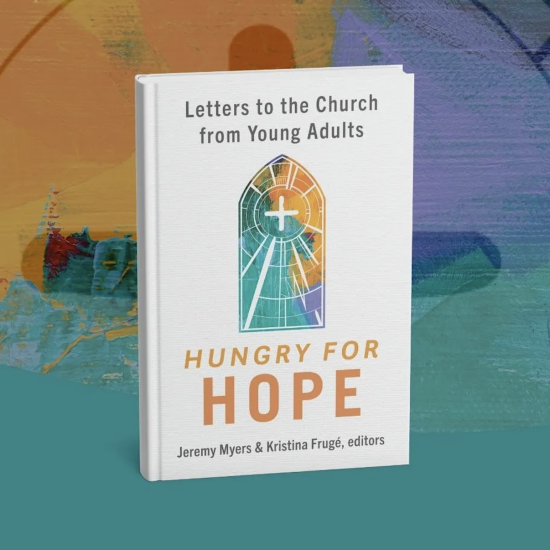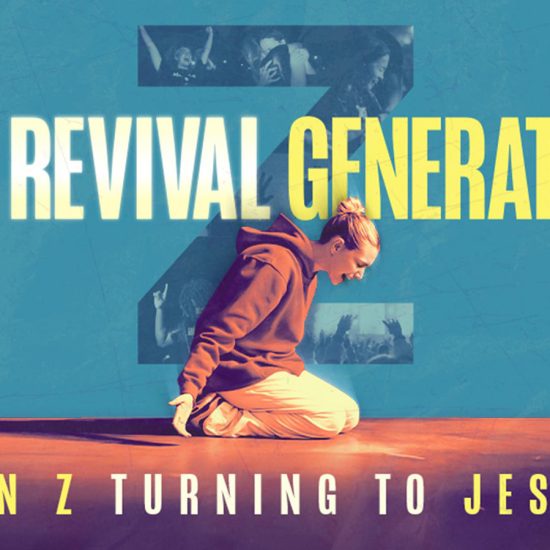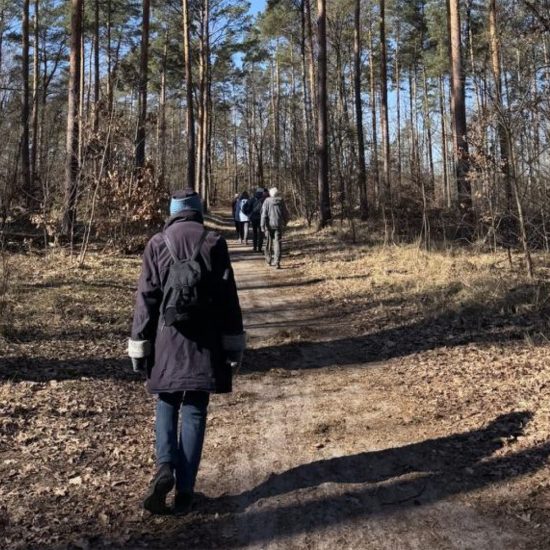

DEFIANT HOPE, ACTIVE LOVE: What Young Adults Are Seeking in Places of Work, Faith, and Community. Edited by Jeffrey F. Keuss. Grand Rapids, MI: Wm. B. Eerdmans Publishing Company, 2024. 170 pages.
It’s been nearly forty years but once upon a time, I was called by a congregation to serve as its associate minister, with a focus on helping to develop their young adult ministry. I was twenty-eight at the time and a younger member of the Boomer Generation. The ages of our group ranged from mid-twenties to mid-30s. Some were married with children, some of us were married without children, and the rest were single. That means that group would now be in our sixties and seventies. I’ve not kept in touch with everyone, but I expect that most of us have been married, maybe even divorced, had had children, and now grandchildren.

Robert D. Cornwall
Much has happened in the intervening years, but churches, especially smaller churches, are still trying to figure out how to minister to and with young adults. One question, of course, involves the way we define a young adult. In many smaller churches, with fewer members under forty, a young adult group might run from early twenties to almost forty. After we answer that question, we have to wrestle with the question of why the younger cohort is less interested in religion, especially institutional forms of religion. There have been plenty of books, articles, and reports, that have addressed these questions. They often offer differing perspectives and answers. Andrew Root has written an entire series of books addressing the current situation. He’s not alone.
In Defiant Hope, Active Love, a group of scholars and practitioners seek to provide the reader with analysis and suggestions for action focused on ministry to and with young adults. The context of this study is the Pacific Northwest, which is among the least religious and least churched regions of the country. Having grown up in Oregon, I know this reality to some extent. But, more specifically, the writers of this book, which is edited by Jeffrey Keuss, focus their attention on the greater Seattle area. Keuss is a professor of ministry, theology, and culture at Seattle Pacific University. He and the rest of the authors are connected to a research entity known as Pivot NW Research. Most of the contributors are faculty, staff, or students at Seattle Pacific University, which is an evangelical Christian university affiliated with the Free Methodist Church. The focus of this research entity is on young adults ages 23-29. That would make this cohort, as I understand it, Gen Z.
The essays in this book, which emerged out of the research done by the participants in Pivot NW, are designed to provide the kind of information that will be useful as churches seek to minister to young adults. The writers focus largely on non-fundamentalist evangelical churches. The essayists recognize that this is an ethnically diverse cohort that tends to be more open to and welcoming of LGBTQ persons. How welcoming the researchers are to LGBTQ folks is not clear since SPU has sent conflicting signals. They welcome LGBTQ students but maintain a more traditional policy when it comes to employees, including faculty. I’m not sure that this policy affects the study, but it is worth noting.
The Pivot NW team based their essays on surveys of congregations and faith communities in the Seattle area, research that revealed several distinctive themes. The chapters lay out these themes. The opening chapter of the book is titled “Emerging Faithfulness: Young Adulthood in the Twenty-First Century.” It is authored by Jeffrey Keuss and Robert Drovhahl, an emeritus professor of educational ministry at SPU. In this chapter, the authors explore life cycle theory and how young adults fit into these theories. As for the implications of this study when it comes to ministry, they note that emerging adults value community, seek communities that enhance their sense of well-being, and offer practices that lead to a sustainable faith. Chapter 2 addresses religious affiliation and is authored by Gabrielle Metzler, a PhD graduate in industrial-organizational psychology, and Mathea Kangas, a PhD student in industrial-organizational psychology. They note that there is no one way young adults approach Christianity. In part, that is because emerging adults are still defining their identities, including spiritual and religious identities. Thus, they desire to find communities that will help them in this process.
In Chapter 3, Lauren St. Martin, an associate pastor of an Evangelical Covenant Church in the Seattle area, focuses on “Deep Listening and Young Adults.” This chapter provides data from consultations with congregations. From this data, they name several themes, including felt needs to build community, sustainability, young adult leadership, transition, and intergenerational connection. Regarding intergenerational connections, something that is often difficult to develop and maintain, she points out that “while young-adult-only spaces are ar4e valuable, they cannot meet all the needs of young adults. The church has a unique opportunity to create intergenerational connections” (p. 75).
Chapter 4, authored by Linda Montano (PhD SPU) focuses on the “Church as Resource Station” for young adults in transition. She writes “As each cohort of young adults navigates the unique circumstances of its time as well as the biological and social clocks that constrain and enable those young adults, the church has a special role in contributing to religious coping that, when positive in nature, has been shown to make a difference.” (p. 97). Then in Chapter 5, titled “identified not Developed,” Mackenzie Harris, also a PhD student in industrial-organizational psychology at SPU, addresses involving young adults in leadership. This chapter raises important questions about how to involve young adults in church leadership, whether in young adult ministries or the larger church. This is an important issue since young adults tend to be transient and often overly busy, especially if they have entered parenthood, so relationships between mentors to younger leaders can be complex. While valued, both younger leaders and mentors can end up hurt if the relationships do not work out as hoped or expected. Nevertheless, this is important to the spiritual lives of the people involved and to the churches.
Martin Jimenez writes Chapter 6, “Young Adults and New Church Models: When a Church Is Not a Church.” In this chapter Jimenez, the program director of Pivot NW, introduces readers to four models of church life, beginning with the “Great Commission Team-Style” modeled by Mars Hill (Mark Driscoll), Neighborhood Incarnation, “New Community-Style,” and “Household of the Spirit.” He writes that the bottom line, whatever the model, is providing young adults with safety, security, and belonging. Knowing what I know of Mark Driscoll, the first two dimensions might have been lacking.
The concluding chapter of the book is titled “Active Love and the Hope of Communities of Loving Defiance.” Written by Jeffrey Keuss, the editor of this volume, the chapter brings things to a close by highlighting one of the major concerns of young adults, especially those in the Seattle area. The young adults he has in mind come from very diverse, often marginalized backgrounds, and may have experienced deep poverty. However, the kind of poverty he has in mind is not just economic poverty, but spiritual poverty as well. In response, he calls for the churches to engage in active love. Of course, that has always proven challenging, especially when theologies don’t mesh with realities.
As a retired pastor who served small congregations largely populated by older adults, many of whom would welcome young adult participation, and would desire to help mentor them, I have noticed that we struggle to connect. Interestingly, many of the concerns expressed by young adults, especially concerns about social justice, as well as LGBTQ inclusion, are central to the identities of these and other Mainline congregations. Nevertheless, we struggle to connect and watch with wonderment as to why conservative churches seem to draw young adults. I’ve watched as even church plants that have focused on younger generations have struggled to gain a foothold. One of the questions that keep coming up in my mind has to do with how small congregations, which don’t have a lot of the kinds of resources described in the book, can provide the kind of spiritual home young adults seem to be looking for. So, I struggled with what to make of the book, especially since the focus is on a region quite different from the one I currently inhabit. At the same time, the book appears to be addressed to a more evangelical audience, though more liberal Mainline Congregations might be good landing spots for the kinds of young adults described here. So, I have questions about what to make of the book. Another question that popped up as I finished reading the book has to do with the identity of young adults in the Twenty-first Century. It seemed that the researchers/authors had Millennials in mind, but with few exceptions, Millennials have moved past the age of thirty. So, I was left wondering if there are differences between Millennials who are in their thirties and maybe early forties, and Gen-Z, the current generation of twenty-year-olds.
In the end, I didn’t get all the answers that I might have hoped for, but the writers raised important questions. Some of these questions seem to be perennial ones, such as how to involve young adults in leadership. It’s a necessary task for the good of everyone, but it’s also risky. In the end, this book might not speak to everyone, but it does offer us an opportunity to ponder the realities that continually face the church, and that do so with even greater concern today as churches struggle to connect with younger cohorts. It will definitely take Defiant Hope, Active Love, for the relationship between churches and young adults to continue moving forward.
This review originally appeared on BobCornwall.com.
Robert D. Cornwall is an ordained minister in the Christian Church (Disciples of Christ). Now retired from his ministry at Central Woodward Christian Church (Disciples of Christ) of Troy, Michigan, he serves as Minister-at-Large in Troy. He holds a Ph.D. in Historical Theology from Fuller Theological Seminary and is the author of numerous books including his latest “Second Thoughts about the Second Coming: Understanding the End Times, Our Future, and Christian Hope” coauthored with Ronald J. Allen. His blog Ponderings on a Faith Journey can be found at www.bobcornwall.com.






